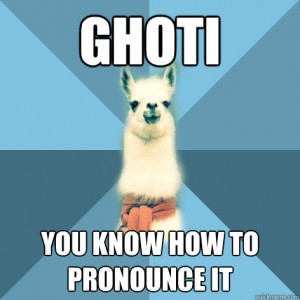I have recently completed my master’s degree for Linguistics at the University of York. I am publishing the title and modified abstract for the 15000 word dissertation I submitted in September 2012 here as a reference for fellow linguists who may be be interested in obsolete English compounds and their link to language development. For any questions regarding the dissertation, Appendix A, or historical linguistics, please email: hughes.brianne at gmail.com
=====ʃʃʃʃʃʃʃ =====
From Turncoats To Backstabbers: How Headedness and Word Order Determine the Productivity of Agentive and Instrumental Compounding in English
=====ʃʃʃʃʃʃʃ =====
Abstract: According to a study by Clark et al (1986), English-speaking children spontaneously create exocentric V+N (turncoat) compounds during the development of agentive and instrumental compounding. Historically, the turncoat pattern has low productivity in English. Appendix A (attached) is a chronological list of all of the known turncoat compounds that entered English between 1050 and 2009. Only two new words of this pattern have been created in the past fifty years: Xpel-air and Pesterchum.
Turncoat compounds are advantageous for children learning verb-object (VO) languages such as English and Spanish because the pattern mirrors the syntax. Forms which are simple and transparent in accordance to the headedness and word order of a language are productive for both children and adults. Patterns that are structurally unclear, or that conflict with syntactic features, will be abandoned.
The advantage of simplicity that turncoat compounds offer to children is outweighed by its unmarked structure and many semantic limitations. The synthetic N+V+er (backstabber) pattern, on the other hand, complies with the headedness of English, is not limited by semantic clumping or verb transitivity, and can describe neutral objects as productively as it can reductive insults. Backstabber compounds also flourish in West Germanic languages, which share right-headedness with English.
Turncoat compounds are memorable and evocative descriptors of objects and occupations, but because of their clash with the headedness of English, their productivity cannot be sustained. Turncoat compounds will never challenge backstabber compound productivity.
=====ʃʃʃʃʃʃʃ =====
{ 3 comments }
October 21, 2012


